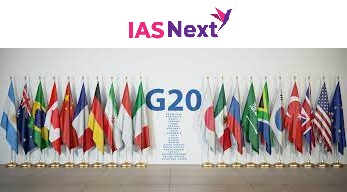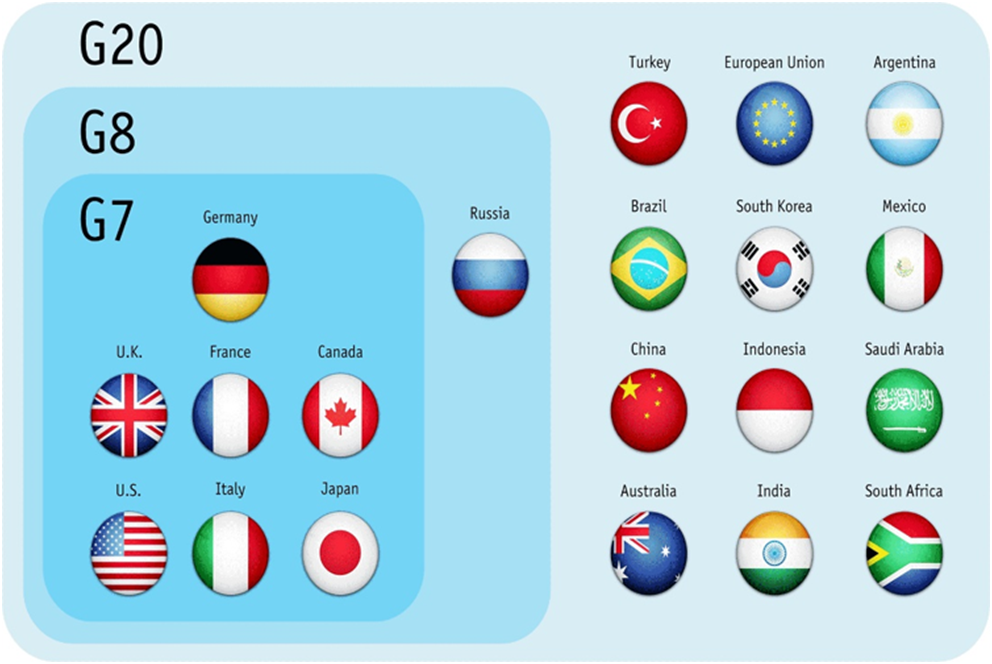CURRENT AFFAIRS
Get the most updated and recent current affair content on Padhaikaro.com
G20 Summit
- IAS NEXT, Lucknow
- 19, Feb 2022

Reference News:-
The Union Cabinet has set in motion the process to build a Secretariat that will look after the affairs of organising the G20 summit in 2023.
- India will steer the international body as its President from December 1, 2022 to November 30, 2023, which will lead to the G20 summit to be hosted here.
Proposed G20 Secretariat:
- G20 Secretariat is being established to handle work relating to substantive/knowledge/content, technical, media, security and logistical aspects of India’s G20 Presidency.
- It will be manned by officers and staff from the Ministry of External Affairs, Ministry of Finance, and other relevant line Ministries/Departments and domain knowledge experts.
- The Secretariat will be functional till February 2024.
What is the G20?
The G20 is an annual meeting of leaders from the countries with the largest and fastest-growing economies.
- Its members account for 85% of the world’s GDP, and two-thirds of its population.
- The G20 Summit is formally known as the “Summit on Financial Markets and the World Economy”.
Establishment:
After the Asian Financial Crisis in 1997-1998, it was acknowledged that the participation of major emerging market countries is needed on discussions on the international financial system, and G7 finance ministers agreed to establish the G20 Finance Ministers and Central Bank Governors meeting in 1999.
Presidency:
- The group has no permanent staff of its own, so every year in December, a G20 country from a rotating region takes on the presidency.
- That country is then responsible for organising the next summit, as well as smaller meetings for the coming year.
- They can also choose to invite non-member countries along as guests.
- The first G20 meeting took place in Berlin in 1999, after a financial crisis in East Asia affected many countries around the world.
Full membership of the G20:
Argentina, Australia, Brazil, Canada, China, France, Germany, India, Indonesia, Italy, Japan, Mexico, Russia, Saudi Arabia, South Africa, South Korea, Turkey, the United Kingdom, the United States and the European Union.

Its relevance in changing times:
- As globalization progresses and various issues become more intricately intertwined, the recent G20 summits have focused not only on macroeconomy and trade, but also on a wide range of global issues which have an immense impact on the global economy, such as development, climate change and energy, health, counter-terrorism, as well as migration and refugees.
The G20 has sought to realize an inclusive and sustainable world through its contributions towards resolving these global issues.